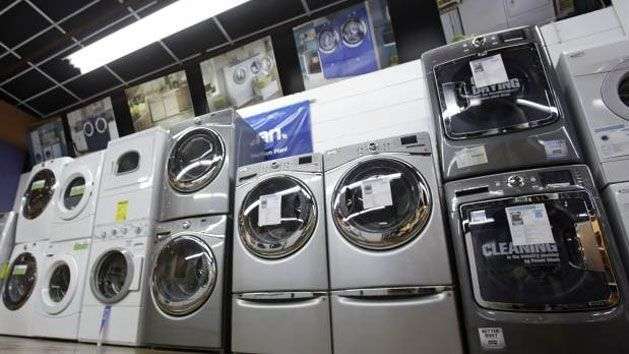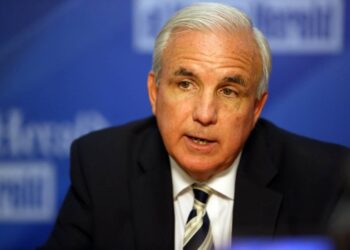The “update the Cuban economic model”, a phrase that has almost become a legitimate label for all economic and social changes occurred in Cuba in the last two years, has opened in the national journalism a highly contrasting line: the same is included in it such important issues as openness to new ways of management and ownership, changes in immigration policy, and attention to aging population, which “elementary” measures as free selling of hygiene and sanitation products in national currency, the ability to access bank loans by individuals, or approval for unrestricted transfer ownership of a home or personal vehicle.
The latest example of that high contrast between high strategy and tactics decisions is the Extraordinary Official Gazette No. 14, dated May 20, which contains the Resolution 143 of the General Customs of the Republic, referring to authorize importation by natural persons of appliances, and 134 of the Ministry of Economy and Planning, regarding the flexibility of corporate social purposes.
While both were published in the same edition of the Gazette, it corresponds to discuss today the one from the General Customs of the Republic.
It turns out that in less than a couple of years, the acquisition of household appliances has had two moments of media attention: first, to resume retailing these goods in August 2011, then, now, with this resolution Cuba legalizes their import by natural persons, as “noncommercial” items.
The first step in this direction by the Ministry of Domestic Trade, answered at the time to the need to meet the needs of self-employed activity related to food and other services that depend on these products, but the marketing of such utensils was opened for the general population.
Resolution 318 issued two summers ago by the MINCIN, lifted a ban that prevented since 2003 retailing electrical equipment other than of first necessity, for reasons of energy availability, as connoisseurs-commented, albeit in a or another, in many homes did not stop the purchasing and renewal of these goods.
From these rules, state stores began to exhibit again air conditioners, stoves, ovens, showers, cookers, fryers, grills, grilling plates, toasters, coffee pots and pans, all electric, as well as popcorn machines.
To support the purchase of these, at the end of one 2011 came to light the Law Decree 289, by which they were given the opportunity to self-employed persons to apply for a bank loan for the purchase of such items.
Even when part of the population had this financial facility-certainly a minority, related to new-management models, the particularly high prices of these products in the state network and its limited offerings in quantity, quality and variety, meant that individual “alternative” trade for a full range of appliances, powered by items brought from outside for “exceptional importers” (which despite the legal obstacles, managed to introduce these teams in the country) could stay afloat.
With the recent entry into force of Resolution 143 of the General Customs of the Republic, Cuba makes easier for natural persons, through the legal import, to meet the needs of their households (as becomes clear that this should not be done on a commercial basis).
The regulation specifies that people can import air conditioners, electric stoves, microwave ovens, electric motor scooters, domestic refrigerators and freezers, showers, heaters, toasters, fryers, water heaters, domestic irons and toasters.
In terms of quantities, for all teams set a limit of two.
Most appliances included in the abovementioned Resolution and fundamental parts thereof, may be brought into the country without their specs, only a group of four must meet specific requirements associated with their energy demands:
In the case of air conditioners of any model, they shouldn’t be of over 12,000 BTU. Kitchens and electric stoves, called “induction hobs” cannot exceed 1500 Watt per bulb in electricity consumption (they can have two foci, four, or more than four).
Moreover, electric or microwave ovens should not consume more than 2000 Watt, mopeds and electric motors have to report a maximum speed of 50 km / h, and an engine power not greater than the 1000 Watt.
Regarding the tax on the items which will be charged by Customs, the resolution includes the air conditioners will be 150 pesos (when it has a power of up to 3/4 ton) and 200 (if it’s a ton). Kitchens and electric hobs induction hob two foci will cost 100 pesos, the three or four lights, 200, and more than four foci, 500.
The microwave oven will be taxed 50 pesos, and mopeds with electric motor 200. For domestic refrigerators and freezers it will be 300, for electric showers, 20, and fryers, 40. Water heaters will cost 60 pesos, the 20 toasters, irons and household of only 8.
It should be remembered that according to Resolution 222 of 2012 of the Ministry of Finance and Prices, Cubans and permanent residents in the country, will pay these fees in domestic currency (CUP) in the case of the first import in the year, and in pesos convertible (CUC) from the second. In the case of foreigners and Cubans living abroad, the payment will be always in convertible pesos.










